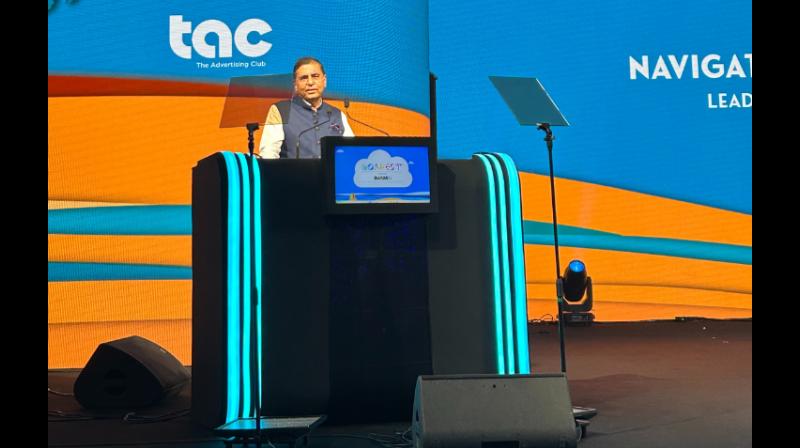On day one of Goafest 2024, the second session witnessed Sanjiv Mehta, executive chairperson, L Catterton India, delve into the theme of adaptability and its critical importance for businesses' scalability today. His session focused on how purpose-driven organisations can navigate the complexities of the modern business landscape.
Mehta began by addressing the end of the 'era of great moderation,' characterised by low inflation and steady economic growth, which has now given way to a period marked by high inflation, technological disruptions, and geopolitical uncertainties.
Adaptability and flexibility
Mehta went on to highlight that adaptability is about more than just reacting to changes. It's about anticipating them and preparing accordingly. He stressed the importance of flexibility and agility, which involve both being open to new ideas and quickly adjusting strategies and operations to stay competitive.
He voiced, "Flexibility involves having an open mind, willingness to change plans, and adjusting to different situations. Agility is the capacity, both mentally and physically, to move quickly and adjust. Flexibility means reacting and adapting to changing circumstances, while agility refers to proactively anticipating change and responding rapidly and effectively. Together, these qualities, along with innovation, resilience, and a learning orientation, are essential for an adaptable organisation."
Brand purpose and strategy alignment
"Purpose is meaningful when the internal organisation is aligned with it," Mehta noted, underscoring that a strong connection between a company's purpose and its strategy is vital for long-term success. He argued that purpose-driven businesses are better positioned to engage employees, satisfy customers, and achieve sustainable growth.
He added, "Many organisations conflate purpose with mission. Mission outlines the actions, objectives, and activities to achieve a vision. However, it's important to distinguish purpose. Historically, in the Anglo-Saxon business world, Milton Friedman's philosophy dominated: the business of business is business. This view holds that companies should focus on maximising profits within legal boundaries and primarily aim to create shareholder wealth."
Impact and authenticity
Mehta warned that without measurable impact, statements about common purpose would be met with scepticism. He emphasised that authenticity in a company's purpose must be backed by tangible results, which helps in building trust and credibility among stakeholders.
"One issue is a lack of authenticity. It's about clarity and consistency, not just articulating advice or framing it for your boardroom or website. If you don't live and breathe purpose, your stakeholders will become very cynical. Secondly, when your actions aren't in sync with your purpose, there's a misalignment with strategy—saying one thing but doing something else. Thirdly, if you can't measure the impact of your statements, it's not worth much—people will become sceptics. Fourth, when different stakeholders have varying expectations and can't align them toward a common purpose, credibility is lost. Lastly, many CEOs camouflage poor performance by talking about distractions, causing people to lose faith in their purpose," he shared.
Mehta stated that the conflict between focus and profits won't arise if you make profits through purpose. He shared, "It's not about pretending; if a business says, 'Hey guys, I'm making lousy returns to my shareholders but delivering on purpose,' that won't work. Both purpose and performance must be integrated to add real value."
Focus on the advertising industry
For the advertising industry, Mehta advised, "Integrating technology such as AI and big data is crucial for understanding consumer behaviour and creating personalised experiences. Additionally, high-quality, engaging content that aligns with social causes and sustainability is essential. Trust, transparency, and effectiveness in advertising practices are paramount."
"So, what we have to ensure is the effective use of technology. In the past, we could operate with limited insights, but today, leveraging technology is essential for achieving effectiveness. In my talk, I've covered five key areas: the end of the era of great moderation, the importance of adaptability, the role of vision and mission, and how to bring purpose to life," Mehta concluded.












